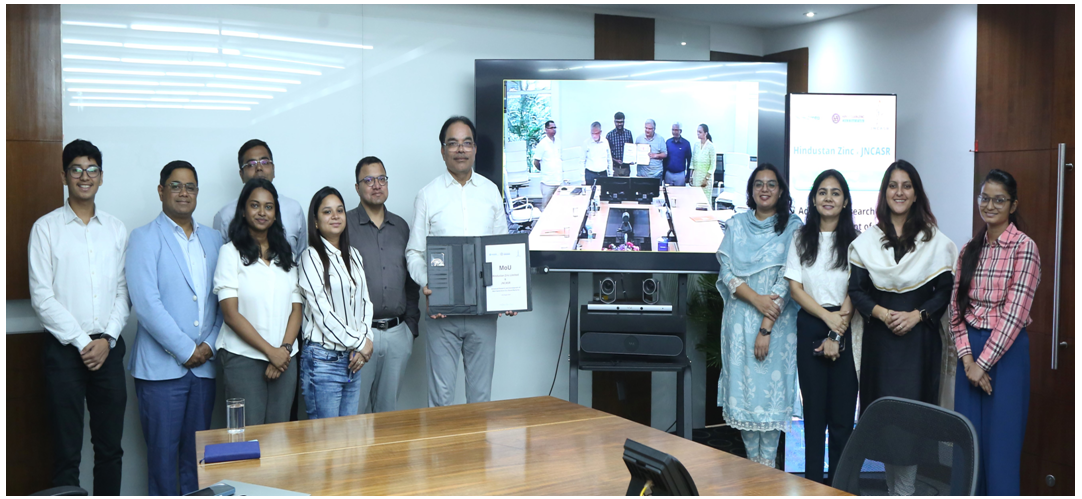JNCASR and Hindustan Zinc Collaborate to Develop Innovative Zn-Ion Battery Technologies

Indigenous Zn-ion battery technologies with new variant of zinc materials could soon facilitate low-cost grid-scale energy storage and other related applications. Jawaharlal Nehru Centre for Advanced Scientific Research (JNCASR), an autonomous institute of the Department of Science and Technology (DST) has signed a Memorandum of Understanding (MoU) with Hindustan Zinc Limited (HZL) on August 21, 2024, to develop new variants of zinc materials and propel the commercialization of zinc-based batteries.
Low-cost and superior performance driven zinc-ion batteries are acclaimed as India’s innovative alternative to expensive and imported lithium-ion batteries. Zinc-ion batteries hold enormous potential for large-scale energy storage due to low-cost and Earth abundant raw materials. Zinc-based batteries offer a fairly mature and safe choice in the market and with recent advancements in material stability, performance and reliability across various temperature ranges, zinc batteries can revolutionize the energy storage sector. With zinc-ion batteries, certain suitable modifications to the electrode, electrolyte and interfaces can yield far superior results to the existing lithium-based battery options in the market.
However, their commercialization is dependent on stabilizing the material’s performance. For instance, zinc is thermodynamically unstable with water-based solutions and therefore requires suitable modifications at the electrode, electrolyte and interfaces.
Addressing these issues, the partnership is poised to drive material innovation and accelerate the development of indigenous Zn-ion battery technologies. Prof. Premkumar Senguttuvan’s group at JNCASR has built a robust research foundation in zinc-based batteries. The group’s state-of-the-art battery characterization facility, funded by the Department of Science and Technology (DST) has led to significant advancements in the field. The resulting research has produced significant publications which have attracted the interest of leading industry players like Hindustan Zinc in the zinc sector.
A direct result of the research funded by DST, the Memorandum of Understanding (MoU) between Hindustan Zinc and Prof. Premkumar’s group will leverage JNCASR’s research expertise and Hindustan Zinc’s product innovation capabilities. It will explore developing new Zinc alloys for use as anodes in Zn-ion batteries and electrolytes for their application in rechargeable batteries.
Prof. Senguttuvan plans to modulate the structure and chemical compositions of alloys and electrolytes from atomic/molecular to device level to evolve the existing issues with materials. A modified electrolyte is expected to increase the life and safety of devices.
The JNCASR team also plans to demonstrate Zn-ion pouch batteries which is easily scalable for large-scale commercial applications. By providing innovative new product solutions, Hindustan Zinc aims to be at the forefront of the battery revolution to support the ongoing global energy transition.
The research agreement targets two major Sustainability Development Goals SDG7 (Affordable and Clean Energy) and SDG13 (Climate Action) – ensuring access to affordable, reliable, sustainable and modern energy for all and taking urgent action to combat climate change and its impact, marking a pivotal moment in the evolution of battery technologies. (PIB)






